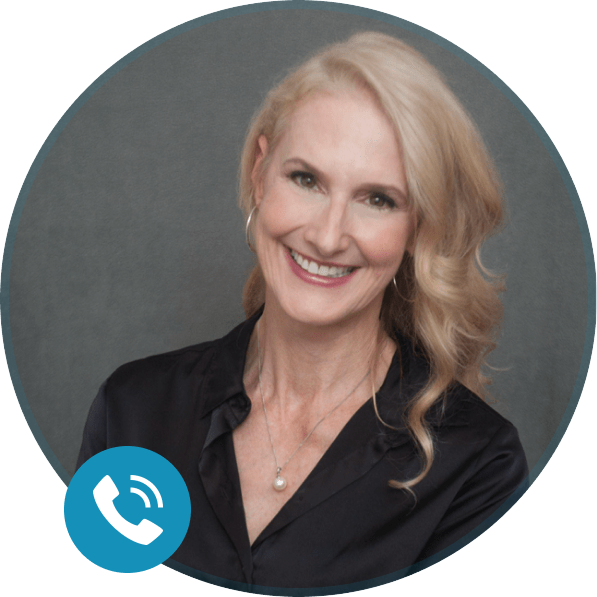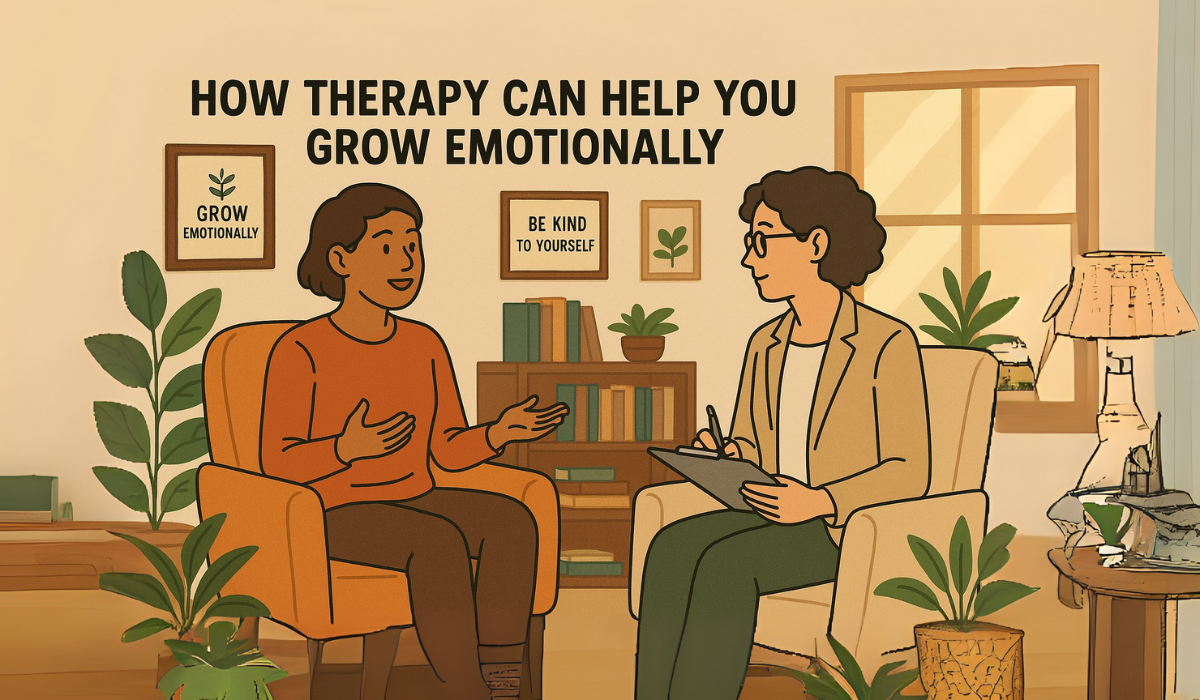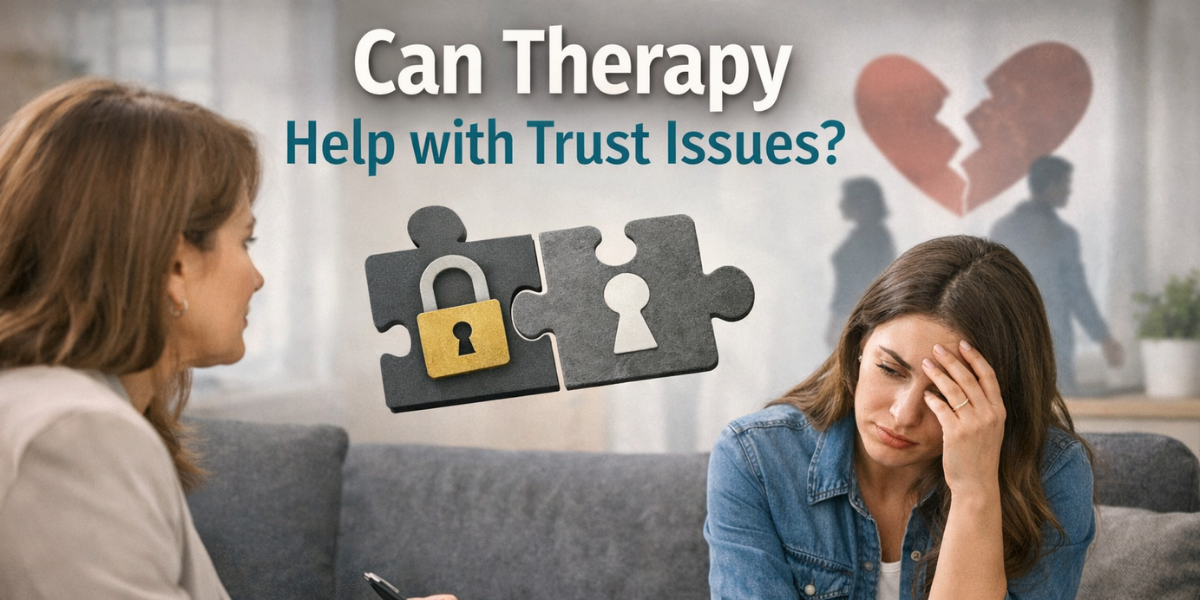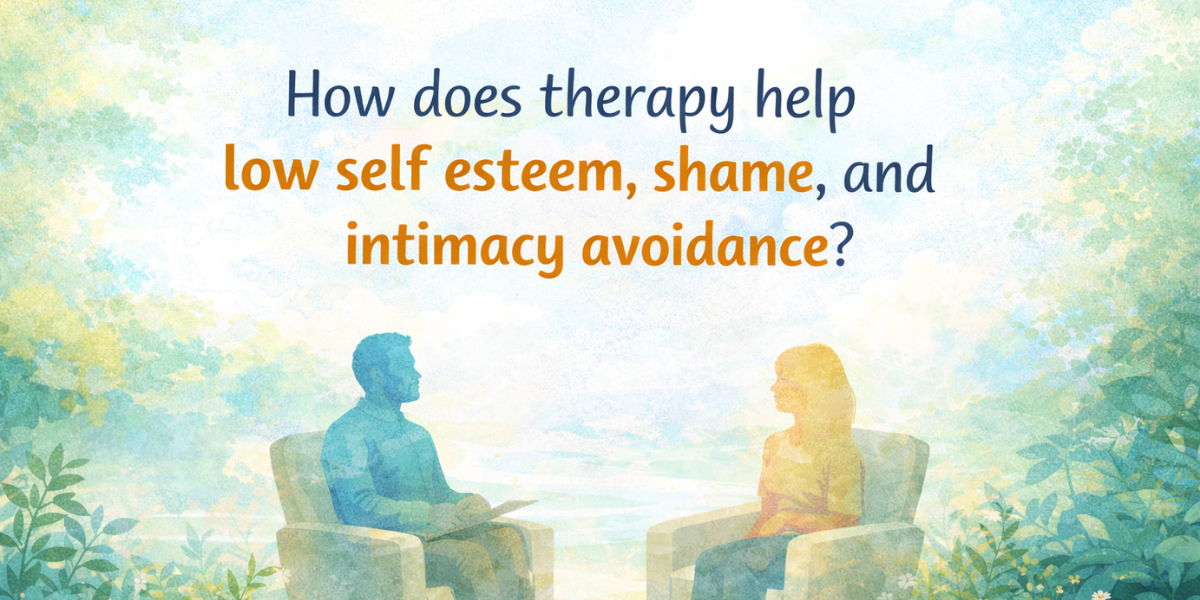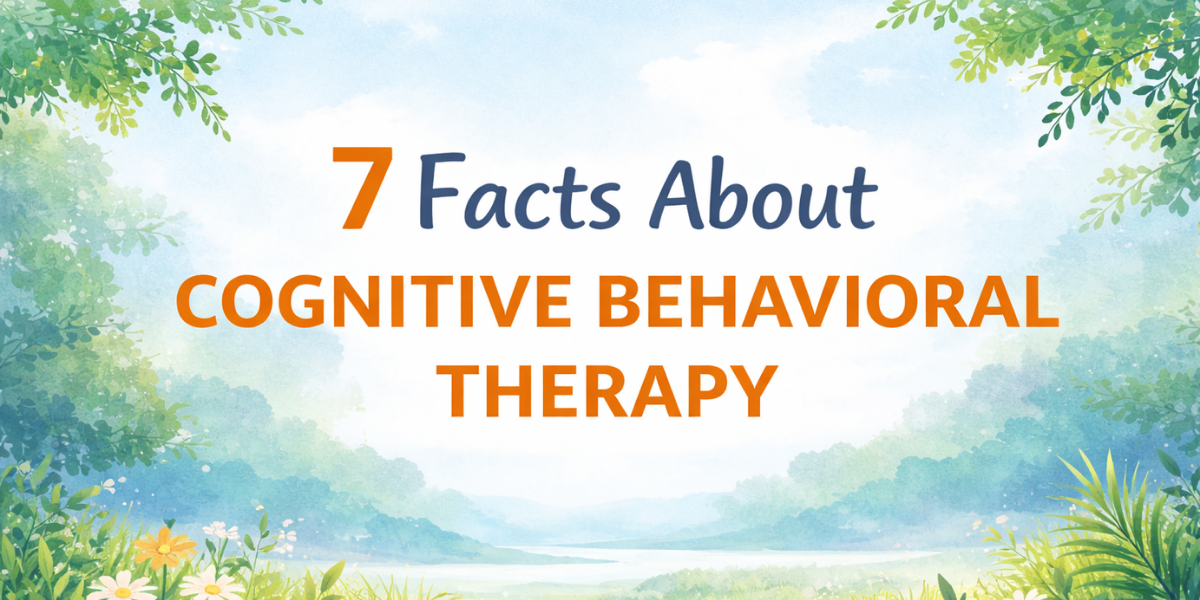Let’s be real for a moment—emotional growth isn’t always a straight line. Sometimes, it feels like two steps forward, one step back. Other times, it feels like standing still while the world spins around you.
But here’s the truth: emotional growth is possible, and therapy can be one of the most powerful tools to help you get there. In fact, many people say that finding the best therapy for emotional growth changed the way they live, love, and understand themselves.
As one therapist once said, “Therapy doesn’t change who you are—it helps you become who you truly are.”
Let’s dive into how therapy works its quiet magic and why it might just be the emotional boost you’ve been looking for.
What Is Emotional Growth, Really?
Before we go too far, let’s break it down.
Emotional growth means becoming more aware of your feelings, managing them in healthy ways, and learning to respond—not just react—to what life throws at you.
It’s about being honest with yourself, setting boundaries, healing old wounds, and showing up as your best self.
But let’s face it—it’s tough to do that alone.
Therapy: A Safe Space to Explore and Expand
When you walk into a therapist’s office (or log in online these days), you’re entering a judgment-free zone. That space is all yours. It’s a place to talk, cry, laugh, unpack past pain, or plan a better future.
And that’s where the best therapy for emotional growth begins—with a space that feels safe and seen.
You’re not just telling your story to someone; you’re rewriting it with guidance, clarity, and care.
How Therapy Helps You Understand Your Emotions
Let’s talk about emotions for a second. They can be messy, right?
One day, you feel confident. The next, you’re doubting everything. Sometimes, you’re angry and don’t even know why.
Therapy helps you name those emotions. It teaches you that sadness isn’t weakness. That anger might be hiding fear. That numbness is still a feeling—it’s a signal.
When you start recognizing what’s going on inside, you start responding differently on the outside.
Here’s a common breakthrough moment in therapy:
“I used to think my anxiety was the problem. Now I understand it’s a signal—something deeper is going on.”
That’s emotional growth.
Rewiring Old Patterns
Most of us walk around with emotional habits we picked up in childhood. Maybe you learned to avoid conflict, or to please others to feel safe. Maybe you shut down when things get hard.
Therapy helps you see those patterns, gently question them, and try out new ones.
It’s like updating old software—you don’t throw away the whole system, but you make it run better.
That’s why so many people say therapy is the best therapy for emotional growth—because it teaches you to live by choice, not by default.
Why Talking Really Helps
Some people wonder, “How can just talking help me grow?”
Well, here’s the magic: when you say something out loud, it changes. It becomes real. You hear your own thoughts differently. You notice patterns. You catch the stories you’ve been telling yourself—and maybe realize they’re no longer true.
A therapist won’t just listen. They’ll reflect, ask questions, and gently nudge you forward.
As one client put it, “My therapist was the first person who really heard me. And in that space, I found myself.”
Life Coaching for Emotional Growth: A Complementary Path
While therapy often explores the past and heals emotional wounds, Life Coaching for Emotional Growth focuses more on the future. It helps you set goals, build confidence, and take action.
Coaching doesn’t replace therapy, but it can work beautifully alongside it.
Imagine this:
- Therapy helps you heal from past heartbreak.
- Life coaching helps you open your heart again and build meaningful relationships.
Together, they’re like the ultimate emotional wellness team.
If you’re looking to go deeper emotionally while also building a better life, combining these two approaches might just be the sweet spot.
Different Types of Therapy for Emotional Growth
Let’s talk options. Not all therapy is the same. Finding the best therapy for emotional growth depends on who you are and what you need.
Here are a few popular types:
1. Cognitive Behavioral Therapy (CBT)
CBT helps you identify and change negative thought patterns. It’s practical and great for anxiety, depression, and self-doubt.
2. Psychodynamic Therapy
This goes deeper—exploring childhood, unconscious motives, and long-term emotional patterns.
3. Humanistic Therapy
Warm, empathetic, and focused on self-acceptance. It’s about growth, not just symptom relief.
4. Mindfulness-Based Therapy
Combines talk therapy with meditation and awareness practices. Perfect for staying present and grounded.
The key? Find the style and therapist that resonate with you.
Signs You’re Growing Emotionally (Even If It Doesn’t Feel Like It)
Here’s the thing—emotional growth is sneaky. It doesn’t always feel like a big win. Sometimes it feels like crying more. Or getting angry. Or finally setting boundaries.
But those are victories, too.
Here are signs you’re growing emotionally, thanks to therapy:
- You pause before reacting.
- You express your needs clearly.
- You no longer tolerate toxic relationships.
- You forgive—not to let others off the hook, but to free yourself.
- You accept that being vulnerable is strength, not weakness.
That’s powerful. That’s progress.
What If You’re Nervous About Starting Therapy?
Totally normal.
Trying therapy for the first time can be scary. You might wonder, “What if I don’t connect with the therapist?” or “What if I open up too much?”
Here’s the deal: You get to go at your pace.
Your therapist is trained to meet you where you are. The first few sessions are just about building trust. There’s no rush to dive into deep stuff until you’re ready.
And if one therapist doesn’t feel like a fit? That’s okay. Keep searching. The right connection makes all the difference.
The Emotional Toolkit You’ll Build
One of the best parts of therapy? You walk away with tools you’ll use forever.
Here are just a few:
- Better communication skills
- Techniques to manage stress and overwhelm
- Self-compassion practices
- Healthier coping strategies
- Clearer boundaries
These aren’t just “therapy things.” They’re life things. Skills that make relationships richer, decisions clearer, and life more fulfilling.
Final Thoughts: Are You Ready to Start?
You don’t have to be in crisis to go to therapy.
You can start because you want more out of life. More peace. More confidence. More realness in your relationships.
Whether you choose traditional therapy, Life Coaching for Emotional Growth, or a mix of both, the first step is simply being willing to grow.
And that step? It’s a brave one.
So if you’ve been thinking about it—this is your sign.
“The greatest gift you can give yourself is your own attention.”
Begin your journey today. The best therapy for emotional growth isn’t just about healing—it’s about becoming the best version of you.
FAQs
What is the best therapy for emotional growth?
The best therapy for emotional growth depends on your personal needs and preferences. Commonly recommended approaches include Cognitive Behavioral Therapy (CBT) for identifying negative thinking patterns, Humanistic Therapy for fostering self-acceptance, and Psychodynamic Therapy for exploring deep-rooted emotions. The most important factor is finding a therapist you feel comfortable with.
How does therapy help with emotional growth?
Therapy helps you understand your emotions, identify unhealthy patterns, and develop healthier ways of coping. Over time, you learn to express yourself more clearly, set boundaries, and build stronger relationships. It provides a safe space to explore your feelings and grow into a more emotionally resilient version of yourself.
What are some signs that I’m growing emotionally through therapy?
Signs of emotional growth include:
- Increased self-awareness
- Improved emotional regulation
- Healthier communication
- More self-compassion
- Reduced emotional reactivity
- Even subtle changes like pausing before responding or speaking up for yourself indicate progress.
Is therapy only for people with mental health issues?
Not at all. Many people seek therapy not because they’re in crisis, but because they want to grow emotionally, understand themselves better, and lead a more fulfilling life. Emotional growth is a valid and powerful reason to seek therapy.
Can life coaching help with emotional growth too?
Yes. Life Coaching for Emotional Growth is a great complement to therapy. While therapy often focuses on healing past wounds, life coaching is more future-oriented, helping you set goals, build confidence, and take positive steps forward.
How long does emotional growth take in therapy?
There’s no set timeline. Emotional growth is deeply personal and can vary based on your goals, past experiences, and the frequency of your sessions. Some people notice changes within weeks; for others, it may take months or even longer. Consistency and openness are key.
What if I don’t feel comfortable with my therapist?
That’s okay—and it’s more common than you think. A strong connection with your therapist is essential. If you don’t feel heard, respected, or safe, it’s okay to look for someone else. The best therapy for emotional growth starts with the right match.
Is online therapy as effective for emotional growth as in-person therapy?
Yes. Many people find online therapy just as effective, especially if they feel more comfortable opening up from home. The key to success isn’t the format—it’s the quality of the connection and the consistency of the work you do together.

